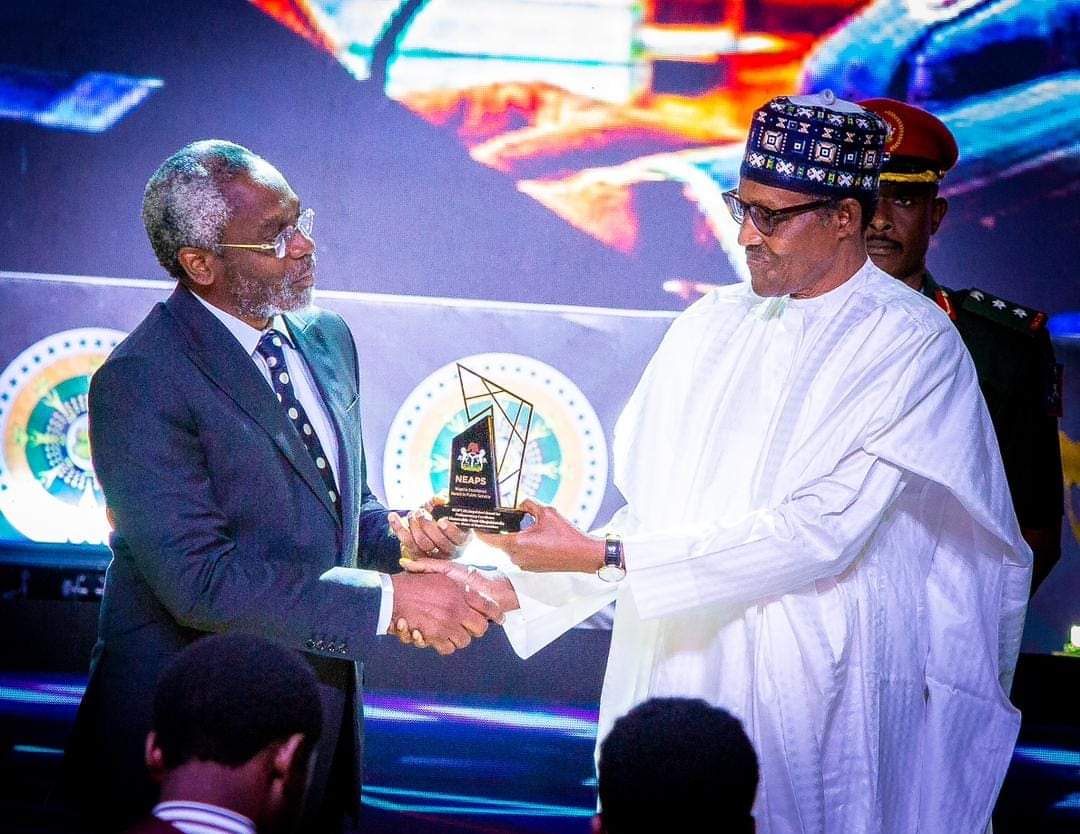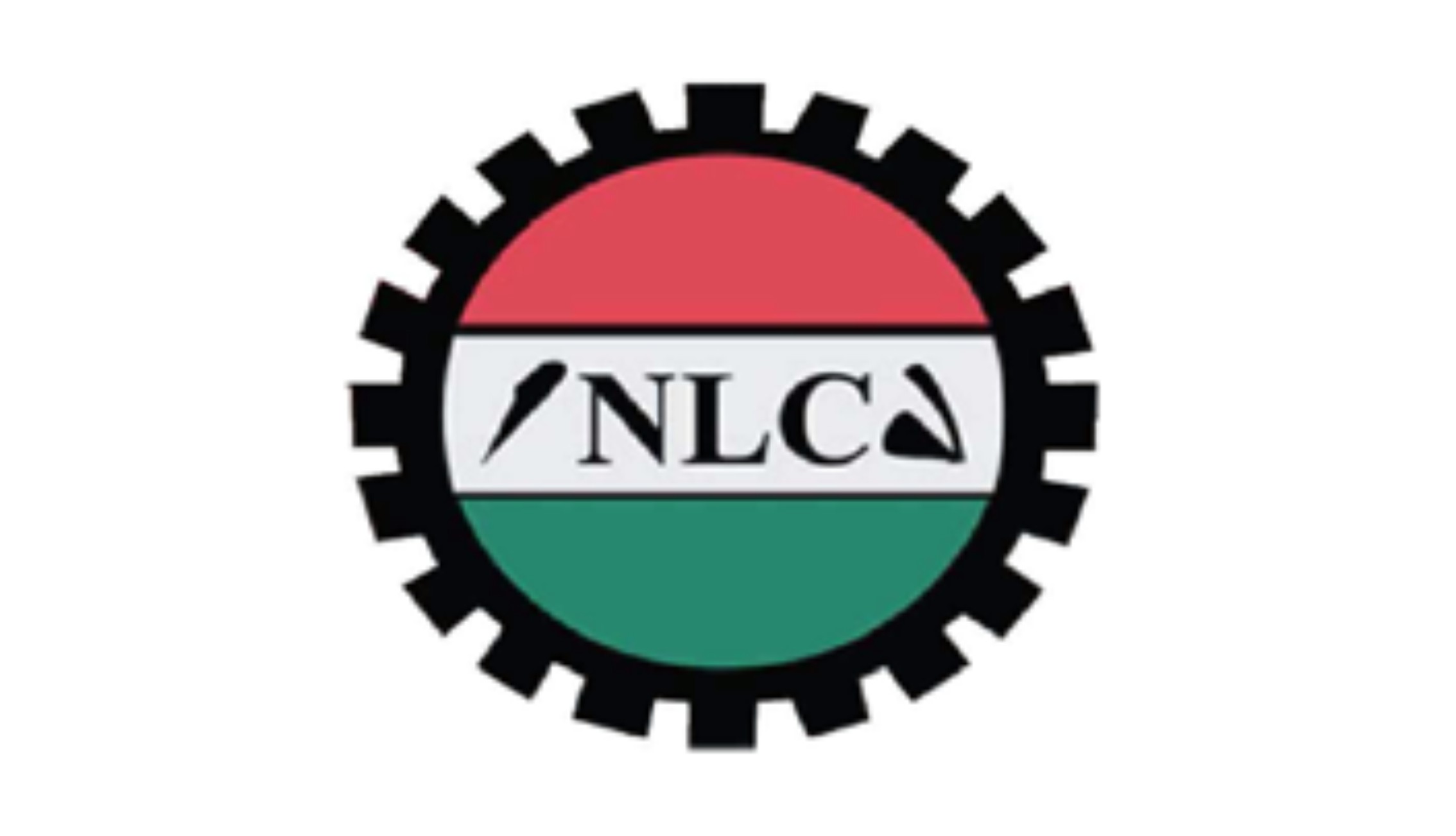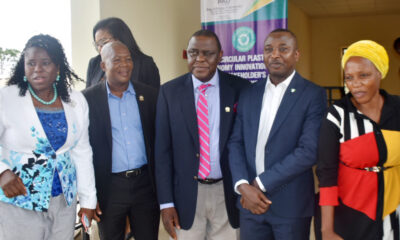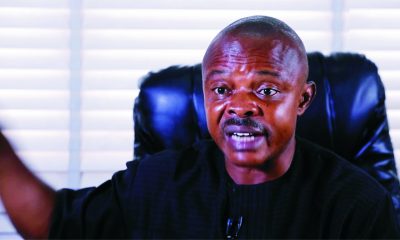Featured
FG Exceeds Loan Target By N1.12trn, Borrows N5.3trn

The Federal Government exceeded its borrowing by N1.15trillion for the period between January and August, 2022.
A copy of the public presentation of the 2023 proposed budget by the Minister of Finance, Budget and National Planning, Mrs Zainab Ahmed, showed that the Federal Government planned to borrow N6.10trillion in 2022.
A breakdown shows that the Federal Government planned to get N3.53trillion from domestic creditors and N2.57trillion from foreign creditors.
According to the document, the Federal Government estimated that it would borrow N4.07trillion between January and August, 2022.
However, the Federal Government accumulated N5.33trillion debt within the period under review, which is N1.15trillion higher than the expected N4.07trillion planned debt.
A further breakdown showed that the Federal Government borrowed N4.82trillion from domestic creditors and N510.21billion from foreign creditors.
The debt from domestic creditors includes the Federal Government’s borrowing from the Central Bank of Nigeria through the Ways and Means Advances.
Ways and Means’ Advances are loan facilities through which the CBN finances the shortfalls in the government’s budget.
The Federal Government recently borrowed a total of N4.61trillion from the Central Bank of Nigeria through Ways and Means Advances between January and August, 2022.
This means that majority of the Federal Government’s domestic debt came from its debt to the CBN.
The CBN said on its website that the Federal Government’s borrowing from it through the Ways and Means Advances could have adverse effects on the bank’s monetary policy to the detriment of domestic prices and exchange rates.
“The direct consequence of central banks’ financing of deficits are distortions or surges in monetary base leading to adverse effects on domestic prices and exchange rates i.e. macroeconomic instability because of excess liquidity that has been injected into the economy,” it said.
The World Bank had, last November, warned the Nigerian government against financing deficits by borrowing from the CBN through the Ways and Means Advances, saying this put fiscal pressures on the country’s expenditures.
Despite warnings from experts and organisations, the Federal Government has kept borrowing from the CBN to fund budget deficits.
Also, the N22.07trillion owed the apex bank by the Federal Government is not part of the country’s total public debt stock, which stood at N42.84trillion as of June 2022, according to the Debt Management Office.
The country’s debt rose by N30.72trillion between July, 2015 and June, 2022, according to data released by the DMO.
According to the DMO statistics, Nigeria’s total debt as of June 30, 2015, stood at N12.12trillion.
By June 30, 2022, the figure had risen to N42.84trillion, which showed an increase of 253.47per cent.
Despite the high increase in debt over the years, the government still plans to borrow N8.4trillion in 2023.
Experts have kicked against the Federal Government’s proclivity for debt, which they have described as unsustainable.
An Abuja-based policy think tank, Agora Policy, said Nigeria’s debt was unsustainable and put the country in a perilous situation due to the high cost of debt servicing.
The group advised the government to deepen and diversify sources of revenue, re-calibrate expenditure to spend smartly, and invest efficiently.
A former President of the National Accountants of Nigeria, Dr Sam Nzekwe, agreed that Nigeria’s debt was unsustainable.
He said, “The debt is huge. If you look at the budget, you will see that a huge sum of money is used to service debts. This is just the debt service charge. We are yet to talk about the principal.”
He also said that instead of focusing on the debt to GDP ratio, the focus should be on debt service to revenue ratio.
He further noted that the country had a revenue problem.
A development economist, Dr AliyuIlias, criticised the government for its constant reliance on borrowing, which was not healthy for the economy.
He further urged the government to seek better ways of generating revenue rather than persistently borrowing.
However, the finance minister, when she appeared before the House of Representatives Committee on Finance, last week, explained that the over-borrowing was a deliberate plan to ensure that money was released early for capital projects.
She said, “We are borrowing faster than what we had prorated. It was a conscious decision to make sure we have funds early enough to release for the implementation of capital projects.”
Meanwhile, the amount budgeted for recurrent expenditures has increased from N2.61trillion spent in 2015 to N8.27trillion in the proposed 2023 budget, according to data from the Budget Office of the Federation.
This shows an increase of N5.66trillion or 216.86per cent in six years, fuelling concerns over the rising cost of government overheads amid declining revenue and weakening economy.
Analysis revealed that recurrent expenditure recorded significant increases each year during the period under the review.
The former President, Dr Goodluck Jonathan, approved a N4.49trillion budget for 2015, which included a N2.61trillion recurrent expenditure.
Capital expenditure was N557billion, while money budgeted for debt service was N953.62billion.
There was a fiscal deficit of N1.08trillion.
The recurrent expenditure rose slightly by 1.53per cent or N40billion to N2.65trillion in 2016, out of a total expenditure of N6.06trillion.
Capital expenditure was N1.59trillion, while money budgeted for debt service was N1.48trillion.
There was a fiscal deficit of N2.2trillion.
In 2017, it rose to N2.99trillion, representing an increase of N340billion or 12.83per cent.
Out of a total expenditure of N7.44trillion, capital expenditure was N2.18trillion, while money budgeted for debt service was N1.66trillion.
There was a fiscal deficit of N2.36trillion.
In 2018, recurrent expenditure rose by N520billion or 17.39per cent, raising the total recurrent expenditure to N3.51trillion.
Out of a total expenditure of N9.12trillion, capital expenditure was N2.87trillion, while money budgeted for debt service was N2.01trillion.
There was a fiscal deficit of N1.95trillion.
The following year, the recurrent expenditure increased by N540billion or 15.38per cent to N4.05trillion.
Out of a total expenditure of N8.91trillion, capital expenditure was N2.09trillion, while money budgeted for debt service was N2.25trillion.
There was a fiscal deficit of N1.95trillion.
The recurrent expenditure was N4.84trillion in 2020, out of a total expenditure of N10.59trillion.
This shows an increase of N790billion or 19.51per cent.
Capital expenditure was N2.47trillion, while money budgeted for debt service was N2.7trillion.
There was a fiscal deficit of N2.28trillion.
However, the increase in 2020 may be attributed to the inclusion of the new national minimum wage in the budget.
In the 2022 budget, the recurrent expenditure hit N6.91trillion, representing an increase of N1.27trillion or 22.52per cent.
Out of a total expenditure of N17.13trillion, capital expenditure was N5.47trillion, while money budgeted for debt service was N3.88trillion.
There was a fiscal deficit of N6.26trillion.
President MuhammaduBuhari (rtd), recently presented the proposed 2023 budget to the National Assembly.
The proposed 2023 budget shows that the proposed recurrent expenditure is N8.27trillion, which is an increase of N19.68per cent or 1.36trillion from the previous year.
Out of a total expenditure of N20.01trillion, capital expenditure was N4.93trillion, while money budgeted for debt service was N6.65trillion.
There was a fiscal deficit of N10.7trillion.
The 2023 recurrent expenditure represents 41.33per cent of the nation’s entire budget and is the single largest element of the budget.
It is also N3.78billion more than the total expenditure for 2015.
From the 2023 recurrent (non-debt) expenditures, personnel costs gulped N4.08trillion; pensions, gratuities and retirees’ benefits took N721.46billion, while overheads cost N443.28billion.
Within the years of the Buhari’s regime, including 2015, a total of N38.82trillion has been budgeted for recurrent expenditures.
This total exceeds the N20.01trillion total budget proposed for the 2023 fiscal year.
Experts have lamented the constant increase in the nation’s cost of governance.
In May 2021, the Federal Government, through the Minister of Finance, Zainab Ahmed, had said it was working to reduce the high cost of governance by doing away with unnecessary expenditures, which might include salary cuts for workers.
However, the increase in recurrent expenditures in the 2023 budget suggests the government may have backpedalled on the plan.
Economic and financial experts have expressed concerns over what they described as significant increases in government expenditure, saying they were worrisome because a large chunk of government revenue had been allocated to recurrent expenditure instead of capital projects that drove economic growth.
The Registrar and Chief Executive Officer, National Institute of Credit Administration, Prof Chris Onalo, has stressed the need for the government to streamline its expenditure in order to manage its debt profile.
He said, “Everybody is concerned about the rising debt profile. And the reason it is going in that direction is because first, our recurrent expenditure is too big. When you borrow money, you don’t borrow to pay salaries. You don’t borrow to finance recurrent expenditure. That is where we have the biggest problem.
“The size of our civil service needs to be trimmed down. Some of the ministries have to be allowed to go. And then, we need a very serious audit of the Federal Government’s workforce. And until we do that, we will not be able to run the civil service system transparently. The government expenditure profile needs to be streamlined very seriously.”
An Associate Professor of Economics at Pan Atlantic University, Dr OlalekanAworinde, recently linked the development to rising salaries and the upcoming election.
Featured
RSG Commits To Workers’ Welfare …. Calls For Sustained Govt, Labour Partnership

The Administrator of Rivers State, Retired Vice Admiral Ibok-Ete Ekwe Ibas, has assured the commitment of Rivers State government to workers’s welfare and industrial harmony in Rivers State.
The Sole Administrator gave the assurance after meeting with leadership of organized labour unions at the Government House, Port Harcourt on Wednesday.
Ibas reaffirmed government’s policy of prompt payment of salaries and pensions to workers and retirees, stating that all local government employees are not receiving the approved minimum wage.
He disclosed that approval has been given for payment of newly employed staff at Rivers State University Teaching Hospital and the Judiciary, while medical workers in Local Government Areas will now receive correct wages.
Ibas explained that, Government is reviewing implementation challenges of the Contributory Pension Scheme ahead of the July 2025 deadline, adding that Intervention buses have been reintroduced to ease workers’ transportation ,with plans to expand the fleet.
He said specialized leadership training for top civil servants will commence within two weeks, while due consideration is being given to implementing the N32,000 consequential adjustment for pensioners and clearing outstanding gratuities.
Ibas commended Rivers State workers for their dedication to service and called for sustained partnership with labour unions to maintain industrial peace.
“This administration recognizes workers as critical partners in development. We remain committed to addressing your legitimate concerns within available resources,” he stated.
The State NLC Chairman, Comrade Alex Agwanwor, thanked the Administrator for the steps taken so far with regard to workers welfare while appreciating his disposition towards alleviating the transportation problem faced by workers.
He also expressed appreciation for the government’s openness to dialogue and pledged continued cooperation towards achieving mutual goals.
The Rivers State Government assured all workers of its unwavering commitment to their welfare and called for continued dedication to service delivery for the collective progress of our dear State.
Featured
Labour Unions In Rivers Call For Improved Standard Living For Workers

The Nigeria Labour Congress (NLC), Rivers Council, has called for policies that will improve the economic situation of the country in order to ensure enhanced living standard for workers.
The State Chairman, Mr Alex Agwanwor, made the remark on behalf of the unions affiliated to Labour Congress during the 2025 workers day celebration in Port Harcourt, yesterday.
Agwanwor highlighted the demands of the Unions which included the immediate payment of pension arrears, implementation of the N32,000 minimum wage for pensioners, and payment of gratuities and death benefits without further delay.
“We are calling for the regulation and protection of e-hailing drivers, implementation of increments and promotions, and resolution of long-standing issues in the polytechnic sector,” he said.
Agwanwor on behalf of the unions appealed to President Bola Tinubu to reinstate the democratically elected Governor, Deputy Governor, and members of the Rivers State House of Assembly.
He stressed the importance of democratic governance and good working relationship with elected representatives.
According to him, the unions expressed disappointment over the imposition of taxes, increase in electricity tariff, and high cost of goods and services, which have further worsened the plight of workers.
“We urge the federal government to take measures to alleviate the suffering of citizens,” he said.
Featured
Tinubu committed to unlocking Nigeria’s potential – Shettima

Vice-President Kashim Shettima says President Bola Tinubu is committed to unlocking Nigeria’s full potential and position the country as a leading force on the African continent.
Shettima stated this when he hosted a delegation from the Hertie School of Governance, Berlin, led by its Senior Fellow, Dr Rolf Alter, at the Presidential Villa in Abuja last Wednesday.
He said Nigeria was actively seeking expertise from the global best institutions to enhance policy formulation and implementation, particularly in human capital development.
The Vice-President noted that President Tinubu was determined to elevate Nigeria to its rightful position as a leading force in Africa.
“The current crop of leadership in Nigeria under President Bola Ahmed Tinubu is ready and willing to unleash the full potential of the Nigerian nation on the African continent.
” We are laying the groundwork through strategic reforms, and at the heart of it, is human capital development.”
He described the Hertie School as a valuable partner in the journey.
According to him, Hertie School of Governance, Berlin, has track record and institutional knowledge to add value to our policy formulation and delivery, especially in this disruptive age.
Shettima reiterated the government’s priority on upskilling Nigerians, saying ” skills are very important, and with our Human Capital Development (HCD) 2.0 programme.
“We are in a position to unleash the full potential of the Nigerian people by enhancing their capital skills.”
The Vice-President acknowledged the vital support of international development partners in that effort.
” I want to thank the World Bank, the European Union, the Bill and Melinda Gates Foundation, and all our partners in that drive to add value to the Nigerian nation,” he maintained.
The Vice-President said human capital development was both an economic imperative and a social necessity.
Shettima assured the delegation of the government’s readiness to deepen cooperation.
” We need the skills and the capacity from your school. The world is now knowledge-driven.
“I wish to implore you to have a very warm and robust partnership with the government and people of Nigeria.”
Shettima further explained recent economic decisions of the government, including fuel subsidy removal and foreign exchange reforms.
“The removal of fuel subsidy, the unification of the exchange rate regime and the revolution in the energy sector are all painful processes, but at the end of the day, the Nigerian people will laugh last.
“President Tinubu is a very modern leader who is willing to take far-reaching, courageous decisions to reposition the Nigerian economy,” he added.
Earlier, Alter, congratulated the Tinubu administration for the successful launch and implementation of the Human Capital Development (HCD) strategy.
The group leader described the development as ambitious and targeted towards the improvement of the lives of the citizens.
He expressed satisfaction with the outcome of his engagements since arriving in the country.
He applauded the zeal, commitment, energy and goodwill observed among stakeholders in the implementation of Nigeria’s HCD programme.
Alter said the Hertie School of Governance would work closely with authorities in Nigeria across different levels to deliver programmes specifically designed to address the unique needs of the country.
He, however, stressed the need for government officials at different levels to be agile and amenable to the dynamics of the evolving world, particularly as Nigeria attempted to successfully accelerate its human capital development aspirations.
-
Politics1 day ago
Bayelsa PDP Crisis Deepens As Factional CTC Sacks Party Management Structure
-
Niger Delta1 day ago
Health Professions Not Superior To Others – Bayelsa Dep Gov
-

 Nation1 day ago
Nation1 day agoCBEX Resumes Operations Despite SEC Ban, N1.2trn EFCC Probe
-
Women1 day ago
Justice Prevails Over Osinachi’s Death
-

 Featured24 hours ago
Featured24 hours agoLabour Unions In Rivers Call For Improved Standard Living For Workers
-
Politics1 day ago
Enugu LP Loses Pub Sec To PDP
-
Niger Delta1 day ago
Diri Recommits To Support For Security Agencies …Cautions AIG, Sacks Youth Exco
-

 Nation1 day ago
Nation1 day agoOgun, Nike Art Gallery Set To Transform Olumo Rock












